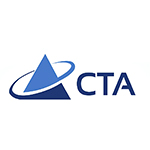
AERONAUTICAL TECHNOLOGIES CENTER FOUNDATION
Who we are
The Aeronautical Technologies Center Foundation – CTA is a sectorial Technological Center specialized in the development of testing technologies for the development and validation of materials, components and aerospace systems, as well as in R&D activities and development of demonstrators in emerging technologies that are of interest to the aerospace sector.
With more than 20 years of experience, CTA is one of the five European reference test laboratories for the main European manufacturers, including Airbus. CTA has participated in the development of aerostructural components and systems for the main aeronautical programs (e.g. Airbus A320, A350XWB, A380 and A400M, Dassault Falcon F7x, JSF-F135, KC-390 and E2, Bombardier C-Series, G7000/8000, MRJ…), being considered as a strategic technological supplier for the main companies of the sector, standing out:
- Support for the development of aerostructural components, improvement of manufacturing processes.
- Participationin R&D programs, support for the development of aerostructural components and aircraft systems.
CTA has participated in numerous regional, national and European research projects focused on the development of new aeronautical aerostructures, monitoring and actuation systems, ultra-precise control, development of test technologies, development of demonstrators for conceptual validation of technologies, being Core Partner in Clean SKY 2 (H2020).
Main lines of research
CTA’s lines of research are framed within the four priority areas of action identified in the revision of the Strategic Plan that establishes the positioning of the CTA Foundation for the year 2030: zero emission technologies, monitoring and control in the intelligent industry, new aircraft architectures and virtualization technologies/simulation of crashes in aviation and space.
Main R&D&I projects
Some of the R&D projects carried out by the center are described below:
CODISAVA 1 & 2:
Advanced distributed control for air transport safety and energy efficiency.
OUTCOME:
OUT of autoclave COMpositE manufacturing, wing and tail unit components and multifunctional design.
EKOHEGAZ
Digitalization in the intelligent and sustainable aeronautics industry for the zero-emission aircraft.
DUOMO:
Development of new generation damage inspection and dimensional metrology technologies for the increase of competitiveness of high impact sectors.
NEUTER:
Design of intelligent system for defect detection in aeronautical materials using neural networks based on thermographic data.
FANTOM:
Development of a novel inspection system that integrates sherography (laser) and thermography techniques.
LATIDO
Development of new systems for more efficient and reliable lubrication of aircraft engines through new advanced design and monitoring methodologies.
COMPOFIRE:
Study of the fire behavior of advanced structural composites used in aeronautics.
DEMETEN:
MEtabolic Packing Design with New Testing Technologies (DIEMETEN).
Participation in R&D Drones projects:
ATLANTIDA
“Application of Leading Technologies to Unmanned Aircraft for ATM Research and Development”.
PLATINUM
(Light Aerial Platform for Innovative Technologies).
MODELFIRE:
Fire behavior modeling of advanced materials used in aeronautics.
Awards and recognitions
- CTA has a Quality Management System EN-9100:2018 (specific to the Aeronautical Sector) and ISO 9001:2015 according to the following scope: “Design and Execution of Tests for the development and certification of aeronautical and aerospace structures and components. Execution of Research and Development Projects in the Aeronautical and Space Sector”.
- CTA is also accredited by ENAC as a Testing Laboratory, in accordance with the ISO/IEC 17025:2005 standard, for the TESTING activities defined in the TECHNICAL ANNEX nº 241/LE509, within the areas of “Fire Protection” and “Environmental Testing”.
- CTA accredits its R&D&I Management System, according to the requirements of the UNE 166.002 standard, in the field of R&D&I Project Development in the Aeronautical and Space Sector.
- CTA participates in UAS/Drones Regulatory Committees: Participation in the regulatory committees of: AESA and AENOR to adapt UAS/Drones certification standards in terms of testing.
- CTA is a member of the Basque Technology Network (RVCTi) and belongs to the following sector associations/working groups: HEGAN, , AERPAS,), AELAF, SPACE AERO, EUSKALIT, AENOR, EUROCA WG-80/SAE AE-7F “Hydrogen and Fuel Cells”.
Services offered
CTA can offer all its testing capabilities as well as the definition and implementation of technology demonstrators for the development of technologies of interest to the drone sector. CTA participates in the regulatory committees: AESA and AENOR committees for the adaptation of the certification standard to UAS in terms of testing.
- Development of test methods / test rigs for component and system validation
- Development, validation and certification of platforms and onboard systems:
- Rotor bank
- Wind tunnel.
- Environmental testing (vibration, acceleration, temperature, etc…)
- Reliability testing (HALT)
- Functional and impact safety tests
- Process optimization:
- Control and Monitoring
- Advanced inspection systems.
- In-flight instrumentation
- Development, validation and certification of platforms and onboard systems:
